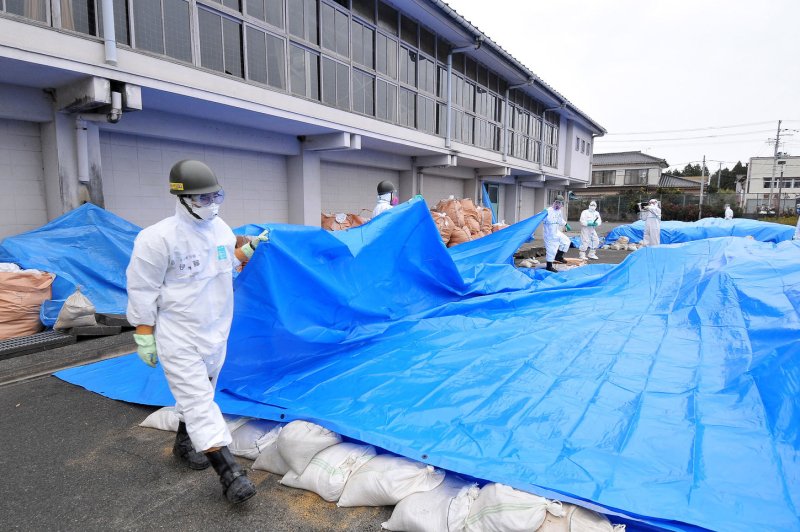
Japan's decision to dump treated wastewater from the crippled Fukushima No. 1 nuclear power plant has been met with opposition from neighboring countries but South Korea said Friday it approved the inclusion of a Korean scientist to an IAEA task force. File Photo by Keizo Mori/UPI | License Photo
July 9 (UPI) -- Seoul confirmed a South Korean national is included in a group of experts on an International Atomic Energy Agency task force reviewing the planned discharge of treated wastewater from a nuclear power plant in Fukushima.
South Korea's foreign ministry and other government agencies said in a joint statement Friday that nuclear expert Kim Hong-suk of the Korea Institute of Nuclear Safety will be on the monitoring team.
Kim also is an adjunct professor of nuclear and quantum engineering at University of Korea Advanced Institute of Science and Technology, and a Korea representative at the United Nations Scientific Committee on the Effects of Atomic Radiation, Newsis reported Friday.
"We will do our best to solve the problem of contaminated water at the Fukushima nuclear power plant while placing the highest priority on public health and safety," Seoul said. "We will not compromise on any measures that may harm the health of our citizens."
Japan's decision to dump treated wastewater from the crippled Fukushima No. 1 nuclear power plant has been met with opposition from neighboring countries, including South Korea and China. Taiwan and Russia also expressed concerns earlier this year.
The IAEA said Thursday it would work with the Japanese government to monitor the discharge after the complaints. The two sides are to cooperate in "reviewing the safety and regulations of the water discharge," Japan's foreign ministry said, according to Kyodo News.
South Korea said Friday the inclusion of a Korean representative on the U.N. task force is "very meaningful." The group includes experts from the United States, France and China. The government said that it would be stepping up monitoring of coastal waters after the discharge, including near southern Jeju Island and near the disputed islets of Dokdo in the East Sea, reports said.
Japan disclosed plans to release the treated water into the ocean in April. Tokyo has defended the policy and has said the discharge will have "zero environmental impact."
No comments:
Post a Comment